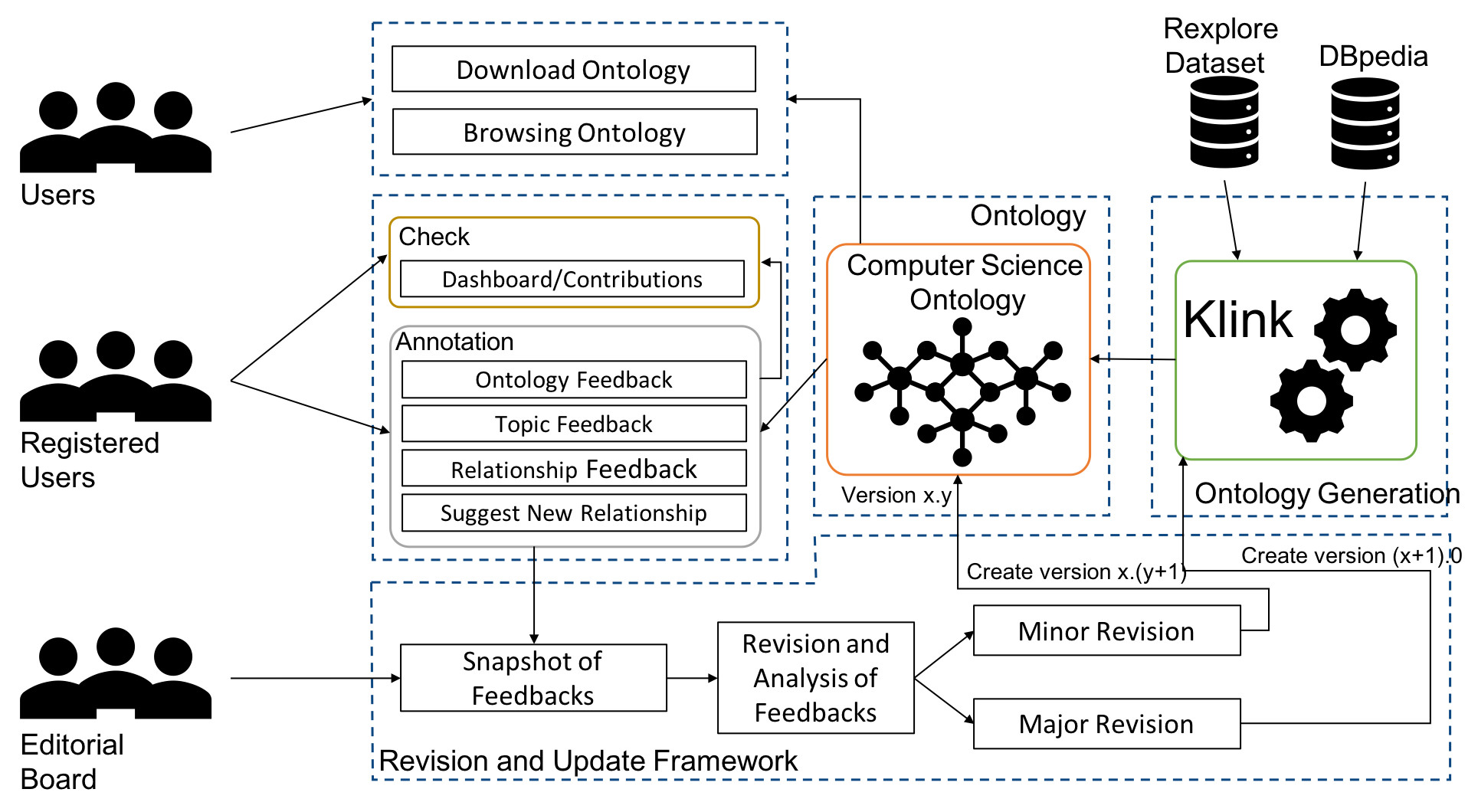Ontologies of research areas are important tools for characterising, exploring, and analysing the research landscape. Some fields of research are comprehensively described by large-scale taxonomies, e.g., MeSH in Biology and PhySH in Physics. Conversely, current Computer Science taxonomies are coarse-grained and tend to evolve slowly. For instance, the ACM classification scheme contains only about 2K research topics and the last version dates back to 2012. In this paper, we introduce the Computer Science Ontology (CSO), a large-scale, automatically generated ontology of research areas, which includes about 26K topics and 226K semantic relationships. It was created by applying the Klink-2 algorithm on a very large dataset of 16M scientific articles.
Blog

Springer Nature Hack Day – Berlin
On 26-27 April 2018, Francesco Osborne and I attended the third edition of the Springer Nature Hack Day, which was held in its headquarter in Berlin. The Springer Nature Hack Day is an event that allows researchers, developers, tech companies, and Springer Nature itself, to gather together and tackle current research issues. Offering also opportunities […]

Supporting Editorial Activities at Springer Nature
The project aims at fostering Springer Nature editorial activities by supporting them with a variety of smart solutions leveraging artificial intelligence, data mining, and semantic technologies. In particular, the KMi team will support Springer Nature editorial team in classifying proceedings and other editorial products, taking informed decisions about their marketing strategy, and improve their internal classification.
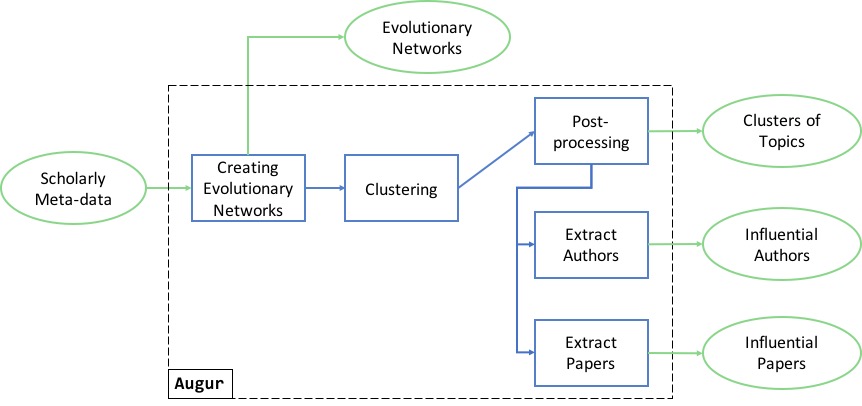
AUGUR: Forecasting the Emergence of New Research Topics
“AUGUR: Forecasting the Emergence of New Research Topics” is a paper submitted to the ACM/IEEE Joint Conference on Digital Libraries 2018, presented on June 5 2018, in Fort Worth, TX, USA Angelo Salatino, Francesco Osborne and Enrico Motta Abstract Being able to rapidly recognise new research trends is strategic for many stakeholders, including universities, […]
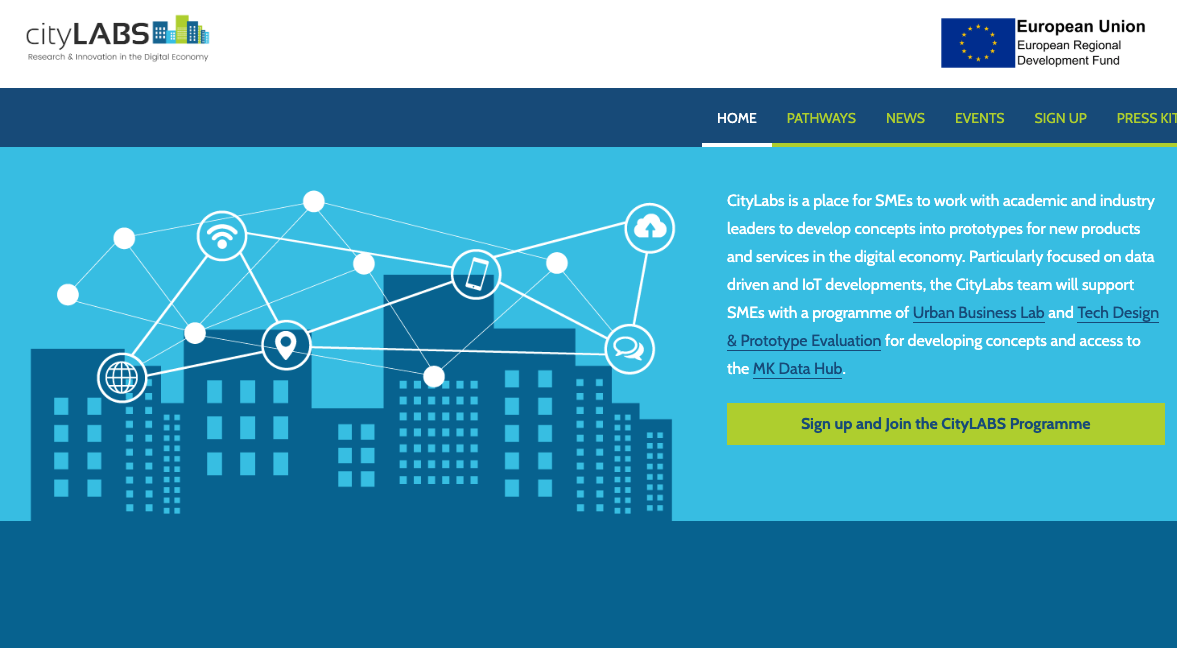
CityLABS Project
CityLabs is a collaborative project that is grant funded by ERDF. The Open University, ZTE and Fronesys have pooled their skills to create an environment that engages SMEs in research and business development. CityLabs is a place for SMEs to work with academic and industry leaders to develop concepts into prototypes for new products and […]
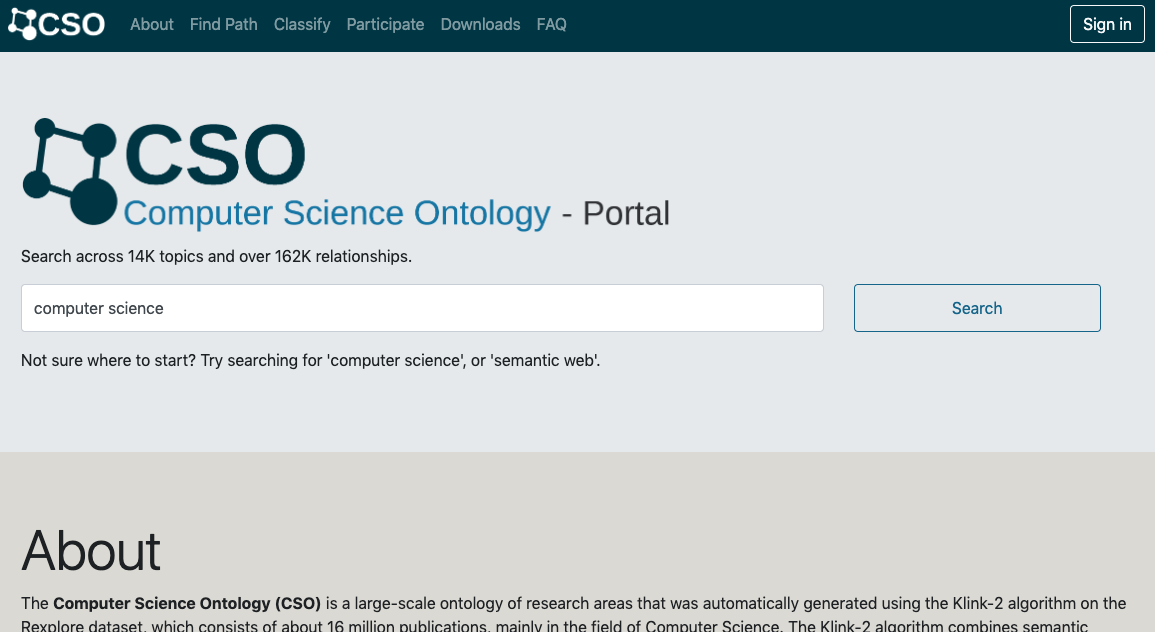
Computer Science Ontology Portal (or simply CSO Portal)
The Computer Science Ontology Portal (also referred to simply as CSO Portal) is a web application that enables users to download, explore, and provide granular feedback on CSO at different levels. This last feature allows us to periodically review the status ontology and release new version according to the received feedbacks.
Springer Nature video
Couple of months ago, with my team, we attended the Springer Nature HackDay (here is the post). Just not long ago, Springer Nature released a short video featuring us. Summarised is also my interview, in which I discuss the advantages of making scholarly datasets, as SciGraph, available to anyone. Other media Building on the success […]

SpringerNature Hackday – London
On the 29th November 2017, myself with two KMi colleagues (Andrea Mannocci and Thiviyan Thanapalasingam) attended the second edition of SpringerNature HackDay in London (@ SpringerNature Campus). Aliaksandr Birukou, Executive Editor of Computer Science at Springer Nature and collaborator of our research team at the Knowledge Media Institute, also joined our group on the HackDay. The whole […]
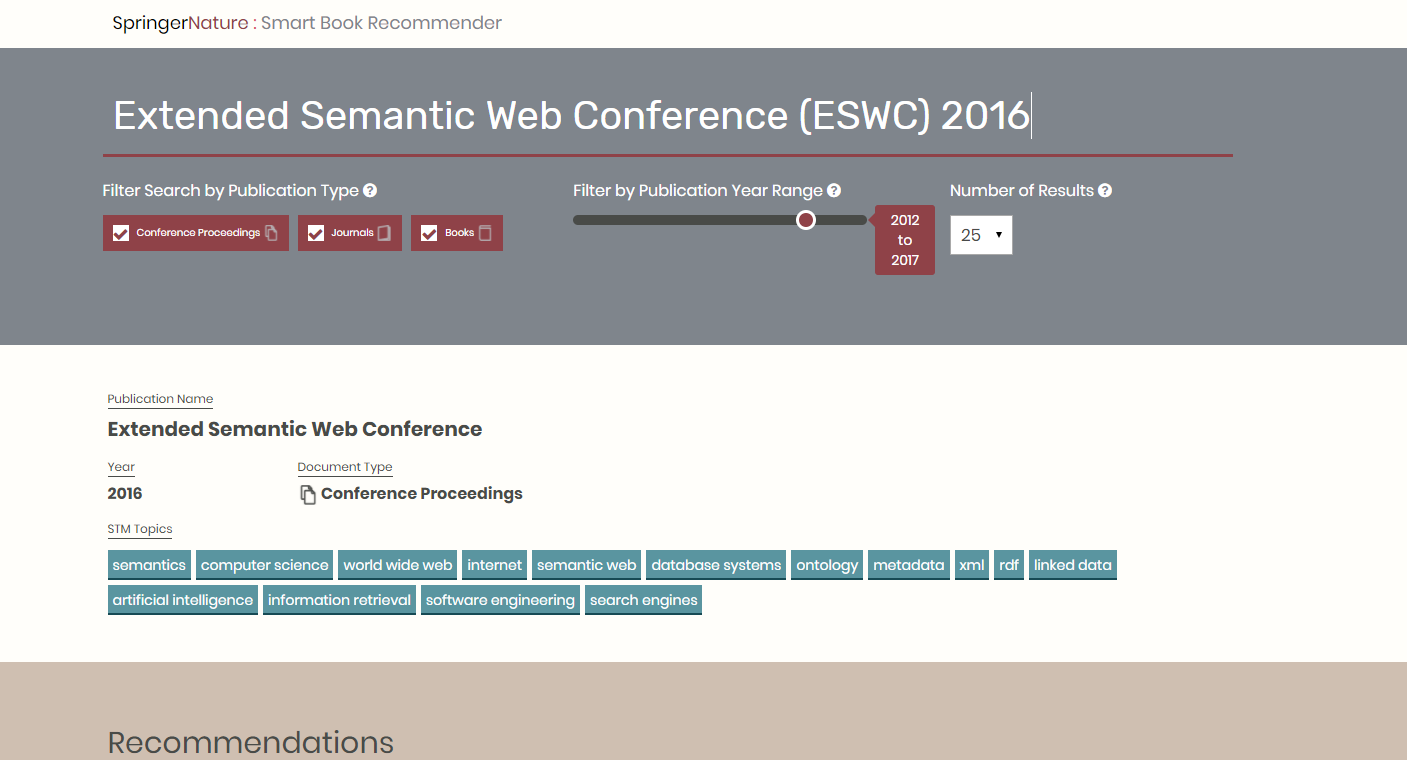
Smart Book Recommender
The Smart Book Recommender (SBR) is a semantic application designed to support the Springer Nature editorial team in promoting their publications at Computer Science venues. It takes as input the proceedings of a conference and suggests books, journals, and other conference proceedings that are likely to be relevant to the attendees of the conference in question. It […]

2100 AI: Reflections on the mechanisation of scientific discovery
“2100 AI: Reflections on the mechanisation of scientific discovery” is a paper submitted to the RE-CODING BLACK MIRROR Workshop co-located with the International Semantic Web Conference (ISWC) 2017, 21-25 October 2017, Vienna, Austria. Authors Andrea Mannocci, Angelo Salatino, Francesco Osborne and Enrico Motta Abstract The pace of nowadays research is hectic. Datasets and papers are […]
